8 Common Characteristics of a Dysfunctional Family
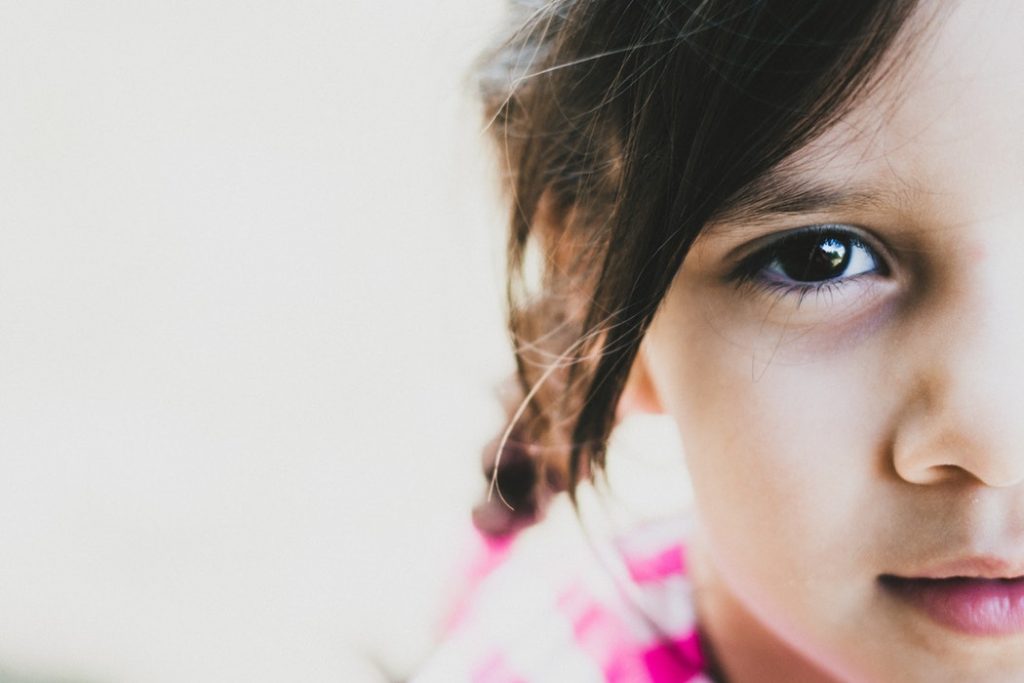
Families are generally known to be the people you can lean on during tough times and have open disagreements without feeling attacked or judged. At the end of the day, they are the ones you can rely on and you know that you will always love each other through thick and thin. But, what about those of us who come from dysfunctional families? And are the signs always clear and obvious, or can they be subtle and deceiving? Psych2Go shares with you 8 common characteristics of a dysfunctional family:

1. Addiction
According to American Addiction Centers, roughly 45% of the U.S. population has been exposed to some form of alcoholism or alcoholic behavior within their family. That translates to as many as 76 million people and approximately 26 million of those individuals are children. The addiction can be drugs, alcohol, or a combination of both. Parents with an addiction can have a negative impact on the family, whether that pertains to financial problems, communication difficulties, or a poor establishment of trust and bonding that affects every family member’s ability to form close, healthy relationships with others.

2. Perfectionism
This one can be difficult to spot, especially if a family looks picture perfect on the outside. But behind closed doors, it’s a different story. When perfectionism is highly regarded and parents place unrealistic expectations on their kids to succeed, the children may grow up with self-image and self-esteem issues, believing that they will never be good enough. The kids may have a hard time going to their parents when they are in need of emotional support. As a result, they may learn to close themselves up and have difficulty trusting people. When parents prioritize their kids’ performances, they leave little to no room where mistakes are allowed and nurtured.

3. Abuse
Abuse is another common characteristic of a dysfunctional family. It can be physical, emotional, and/or sexual. Abuse can occur between two spouses, from a parent to a child, or between two sibling children. Abuse is a method families use to punish their members for unwanted behavior. It’s also a way for members to be in control when they feel as though they’ve been betrayed or wronged.
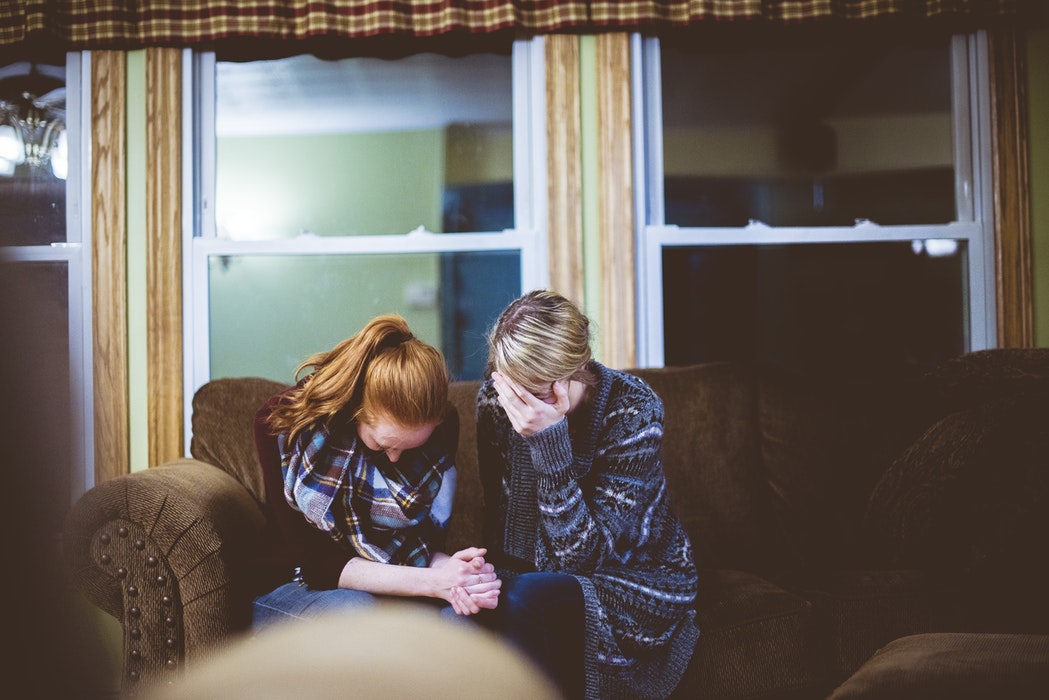
4. Unpredictability and Fear
Unpredictability and fear often go hand in hand. They are a pattern often produced from abuse as mentioned in the previous point, but can also exist from a parent’s or spouse’s financial handling or emotional and reactive behavior. Typically, children who come from an unstable household, whether it be financially or emotionally, may suffer from low self-esteem issues and can either grow up to be super responsible people pleasers or the exact opposite and mirror their parents’ toxic behaviors. Fear and unpredictability are characteristics influenced from strict and overly religious upbringings or when a family does not allow diversity for members to form their own beliefs, aspirations, and interests.

5. Conditional Love
Unconditional love is something that healthy families demonstrate. But in dysfunctional families, conditional love is often exercised from members’ manipulative tendencies. When a parent or spouse gives a family member love only when they want something, it can either come from a place of insecurity or selfishness. For instance, a mother may only show love and support to her child, hoping that when the child reaches adulthood, they will take care of her. But when that child grows into what she considers a moody or inconsiderate teenager, she may not readily show the same love and support she originally did. When conditional love is exercised, it can make family members feel used or cheated.
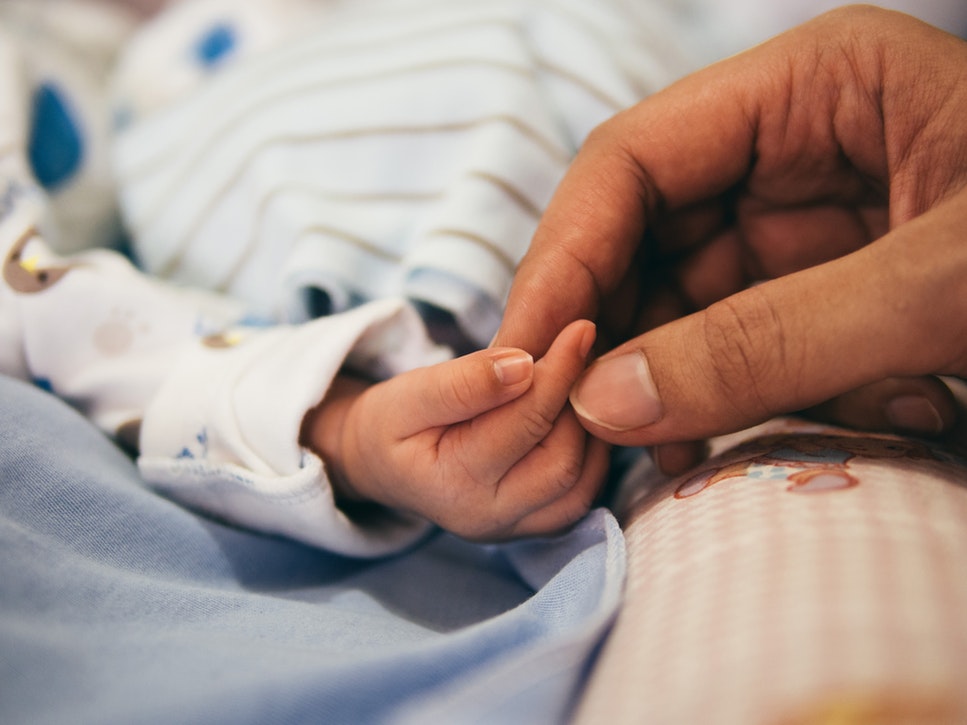
6. Lack of Boundaries
When a family doesn’t establish healthy boundaries, members will often feel as though they have no privacy or that they aren’t being respected. Parents who see their children as trophies or an extension of themselves can teeter on narcissistic behavior, which can often cause children to feel confused about their own identities that aren’t nurtured properly or encouraged. A lack of boundaries often occurs when one parent tries to be controlling and dominant through anger. When children feel as though they have no choice but to act or behave in certain ways they do not upset their parent, they usually grow up feeling alienated and lost, and may be overly self-critical.

7. Lack of Intimacy
Dysfunctional families can often mistake codependency as intimacy. In healthy families, parents teach their children how to be self-sufficient. But if a parent fears letting go of their kids, they may express not being able to live without them if they grow up and leave. The same applies for a spouse who may show excessive clinginess to their partner. It’s important for family members to provide the choice of being with one another because they want to, not because they have to. Ultimately, love is a selfless act and should never be pressured nor forced.
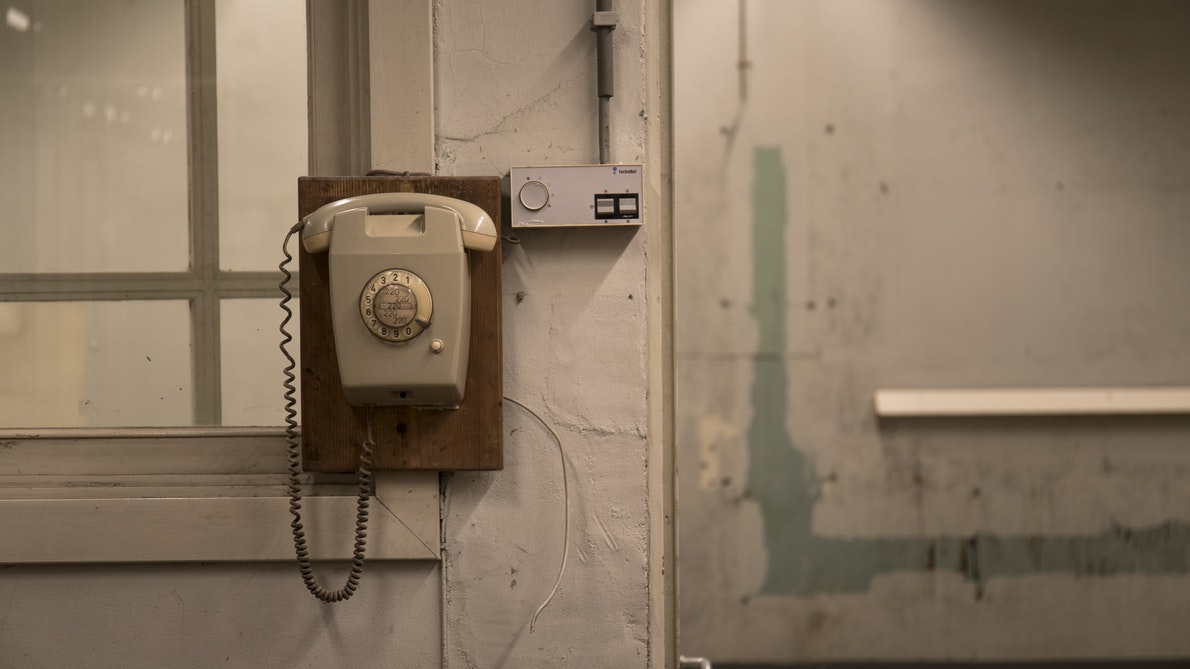
8. Poor Communication
A lot of conflict in families typically stem from poor communication. When members can’t fully express themselves due to strained or nonexistent communication, they may end up feeling unheard, invisible, or misunderstood. Overall, dysfunctional families don’t practice healthy communication skills enough. As a result, members can be quick to react, rather than wanting to listen in order to understand. Consequently, many arguments arise which create daily stress and challenges that tear the family apart, instead of bringing it closer.
Does your family identify with any of these characteristics? Psych2Go would love to hear your thoughts! Please be sure to leave a comment down below!
Want to say hello or send a personal message? You can reach the author at catherine@psych2go.net. ♥
If you enjoyed this article, then you may also like 10 Ways to Deal with Toxic Parents or 7 Ways Alcoholic Parents Affect their Children from Psych2Go.
References:
The Eight Most Common Characteristics of a Dysfunctional Family. (2017). Full Gospel Businessmen’s Training. Retrieved February 14, 2018.
Goddard, M. (2018). The Six Traits of a Dysfunctional Family. Health Guidance. Retrieved February 14, 2018.
Please be sure to also check out our new e-book: An Introvert’s Survival Guide! It’s FREE for the first week!
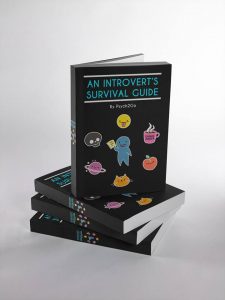



I feel that my family to greater or lesser degrees have committed numbers 2 – 8 on this list. I used to think my family was normal and great but a few years of reflection along with hard personal struggles really opened my eyes.
Hi William, thanks so much for reading and for opening up about your experiences. I’m sorry to hear that your family exhibits a lot of the characteristics I mentioned. That must be hard. I think a lot of families try to strive for normal, but I’ve come to find that a perfect family doesn’t really exist. I’m glad you were able to reflect and see how your family’s personal struggles have shaped your household. I’ve certainly learned over the years, too, on the problems that have existed within my family for many years and how it has affected me growing up. If you ever want to see more of any specific content, please let us know. ♥
Growing up my parents both had problems with drinking too much alcohol and they argued a lot. My dad also beaten my mom very often.
I always tried to not upset my father especially when he was drunk. He never abused me physically but I still was extremely afraid of him.
Also my mom neglected me and my sisters a lot so I was in charge for them.
Hi Katja, thanks so much for reading and for sharing your experiences with us. I’m sorry to hear that your parents struggled with alcoholism, and how it affected you and your sisters. I think for someone to be abusive, they don’t necessarily have to be physical. Just using fear as a tool to emotionally harm someone is enough to do damage.
I’ve been through something similar where anger has been used to try to control me, and it affected me a lot growing up. Still does today, but I’m trying to work on it. I hope you are doing better now where you are now. If there’s any more content you’d like to see more of or anything else I can do to help, please let me know. ♥
I grew up in a financial unstable household but I never really actively noticed that until I got like 8-9 years old (it was in school when I felt my family not having much money somehow makes me worth less) every school trip or excoursion was hell for me cause I’d have to ask my mom for money.
Also what I feel like is lacking on this list is a lack of expressed emotional/physical love. I was never told that I was loved and grew up thinking I’m not entitled to it, which may be the root of my social anxiety.
Hi Willi, thanks so much for reading and opening up about your experiences. I’m sorry to hear that you grew up in a dysfunctional family. Asking for money is always a hard thing to do, even when it’s our own family, especially since you expressed your social anxiety that grew from lack of emotional and physical love. That’s very much an essential component to learning how to trust and love others, too, and I’m sorry that you’re struggling with it, too. Growing up, my parents were never really affectionate with one another, and my parents worked a lot when I was little, so I’d rarely see them. I understand how painful that can be. But, I hope things get better, I really do. Hang in there, and if there’s any more content you’d like to see more of, feel free to let me know! ♥
I have been clean for 8 years, and in that time gotten a Master’s degree after destroying my former career and have taken on a new, fulfilling career. My family saw me at my worst. They have also seen me at my best. However, my spouse and I don’t communicate, and don’t show love. We love each other, just don’t show it. There is still some conflict stemming from my past, poor choices. My worry is on my children. What should we do?
Hi Andy, thanks so much for reading and opening up about your story. It’s powerful when you acknowledge that there is a problem, and that you want to get better, especially for your family. It may seem daunting at first, but reach out to your spouse and let her know that you still love and care for her. Let her know you want to get better and bring the family closer, but that you’re not entirely sure where to start, and ask her what she needs more of. People like being asked what they want when they feel neglected, or if things may be hard to communicate. Let her and your kids know you are open to change. I hope this helps! If there’s any more content you’d like to see more of pertaining to this, please let me know. Good luck and hang in there, you’re doing your best. ♥
[…] you enjoyed this article, then you may also like 8 Common Characteristics of a Dysfunctional Family or 10 Ways to Deal with Toxic […]
My family has every problem mentioned above aside from addiction, though I feel the most prominent problems are perfectionist and poor communication.
My father is a highly respected member of society, and so my mother raised us to become the pretty picture of happy family, uncaring of what we would’ve liked to be. Us siblings are all too afraid of speaking out, because that leads to some form of corporal punishment. Being the youngest, with my older siblings already having families of their own, sometimes I feel left out and so detached.
I don’t know if my parents actually care about us at all, or if they see us as trophy tools to make the family look great, but I think it caused me to feel this detachment from my peers.
I don’t even care to feel love towards my brother, because he’s been living separately from us as long as I could remember. In contrast, I am close to my sister, whom I see as mom more than mother herself.
I do feel affections for certain things and people, but to me love always comes with a price tag.
I tried a therapist, and they said I am a high functioning sociopath, whatever that means. I understand I have problems, but I can’t muster enough care to actually do something about it.
Hi Alice, thank you for reading and opening up about your story. I’m familiar with feeling like a trophy more than a human being. My mother has perfectionistic tendencies that were hard to deal with growing up. It can be incredibly suffocating when families strive to be perfect more than caring and supportive. Living up to an image puts everyone in an awful place. And I’m sorry that you grew up in a similar environment. I’m glad you’re at least close to one person in your family. Similar to your sister, I’ve developed a very nurturing personality because I mostly lacked being nurtured in my life, and I try to be supportive to my brother whenever I can be. Despite the labels and diagnosis you received, I think from your message, it goes to show that you still care. It’s just you’ve been through a lot and may not always know what to do or show it outwardly or immediately. But, I can tell that you still care because it’s been on your mind a lot. Coming from toxic backgrounds, it’s easy not to give ourselves credit. And sometimes progress or courage isn’t easily detected when our first reaction isn’t to reach out because we’re scared or numb from the things we’ve faced. I think it would be a good idea to perhaps talk to your sister about some of these things and see what she says as well. I hope that helps. ♥
I grew up in a fundamental Christian home. I always thought I had an ok, happy life with my family. But recently, since moving out to live closer to my fiancé, my eyes have been opened to just how dysfunctional it really is in my parents home. I think they apply to more than half of the items listed. They never had alcohol or drug issues, but I feel completely unprepared for adult life. They never properly reared me to be a responsible adult that thinks for herself. I feel lost and really disappointed in them. Any advice for a 23 year old who needs to rewire her brain from a lifetime of negativity and dysfunction? I still hold true to my Christian beliefs, but I’m still figuring out who I am outside of my family…. it’s like my whole identity was framed by my family.
My family has never been a very good one. My mother and father divorced when I was only a year old, and that causes me quite a but of social anxiety. When my dad married my step mom, she would favor her own children and consistently showed my brothers and I that she believed we were less than worthless to her. She would emotionally and physically abuse us, and would consistently call me and my twin that we were fat and didnt need to eat more food. My older brother would sexually abuse me, and it only stopped after he graduated and moved out. Because of my family, I feel that I am worthless, and that the world would be better off without me. I am still trying to work through the trauma that they caused.
Thank you for this, Catherine. I’ve confirmed a lot of things about myself, my father, and our family as a whole through this post. I just referenced your article, by the way, in my most recent post (https://pensivefeels.com/emotions-for-my-dysfunctional-father/). I hope you can find inspiration from my experience (as I told it there) to write more informative posts such as this that can bring awareness to individuals like me—suffering from dysfunctional families and having a hard time self-parenting as young adults.
Thanks, again!
Thanks for linking our article. Your story is powerful and love your section on tips on how to deal with a dysfunctional parent. Looking forward to reading more of your work.
This was a very helpful article. I have often struggled to express how my childhood was difficult and how my family dynamics continue to be difficult for me, especially since there was no addiction issues or overt physical / mental abuse.
But in reading this article, I have and continue to experience Perfectionism, Conditional Love, Lack of Intimacy and Poor Communication with immediate and extended family members, which is exactly what causes my feelings of isolation, being unheard and misunderstood. I have tried to do things differently / be different, and have learned I literally cannot be perfect enough, there will always be something. It is very difficult to *give up* on family dynamics ever getting better.
I try to focus on the marginal, incremental improvements with one parent since the death of the other, and try not to dwell on the deteriorating relationship with my sibling, which causes me to be cut off from that whole branch of the family.
I, as well come from awfully dysfunctional home life…so sadly trye. Mother narc, not at all well n drinker who would end up raising us aft father ran off without any real responsibility for his wrongs …..I was traumatizing at 9 yrs old but a guy from neighborhood, have huge memory lapses, them added abuse from bf, bf passed away very traumatically….all a long the way had narc mother caring guy or me…..chk that. On disability now, work pt, going back to school at 57 yrs old, aged well-took care of myself….got away from drugs n alcohol quite awhile ago…better now but def still struggle, PTSD mostly….Ty for your information n concern for the misfits of society.. ..
I’ve known for a long time that my family was dysfunctional. I grew up with an alcoholic father/enabling narcissistic mother. I was rarely allowed to have friends over because the house was messy or in disrepair. I was largely ignored as a child, and developed a loud, obnoxious personality to compensate. My younger brother is the favorite and my mother enables his drug abuse and sexually inappropriate behavior toward my sister and I. It hurts, but I have yet to bring myself to terminate my relationships with them. They have ruined each other’s lives. My brother has targeted me because I refuse to tolerate his abusive behavior. I now have a criminal record because he called 911 and told a lie. My mother backed him up, hence my wrongful conviction. After she allowed my brother to lock me out of the house for a month, I finally left. It still isn’t enough. Not enough distance, I’m still too susceptible to my mother’s imploring requests that I come help her dig out of the disaster that my brother has created in my childhood home. I go and help, he comes directly behind me and un-does everything I do- after I leave he punishes me (in his minds eye) for daring to imply that he had done something that needed fixing by spinning tall tales of my transgressions against him and my mother. She has allowed him to eat up every penny of her retirement, and most recently has convinced her to sell her property. She lives in total chaos and complete filth, and is more isolated from her community than ever before. She is the victim and the martyr. “How COULD you do this to me??, she asks him -after repeatedly allowing him to abuse her financially, emotionally, and who knows how else. Our entire community believes she is the only victim of this mess. I have been left broke, homeless, without transportation or communication -because I allowed both of them to have power over me.
I can’t play anymore! I’m so obstinate that I keep racking my brain about how to help my mother SEE what’s happening here. But she won’t, she can’t, she’s not going to. Period.
I’m not sure if this is dysfunction or just another issue. To outside people, mine is what they’d consider a model family: properly raised kids with good parents and good manners, a Christian family that every parent wants their child to marry from or be associated with there was never drug addiction, alcoholism or physical abuse but for me, there are so many issues. We are never honest with each other, we never communicate with each other (actually we’ve never been close) and we feel the need to speak behind other people’s backs and mind their businesses, someone can wash dishes and leave your cup and plate in the sink, we don’t care when someone is sick and not feeling well, we live in the same house but are not even sure how everyone really is as long as we kneel down and pray everyday, nothing else matters. For me who decided to leave the conservative life style and engage in yoga and meditation, it’s like I’m the devil himself (because the devil is using me now) I can’t express myself freely and openly and everything I say contrary to the beliefs is “to be prayed for so that God can change me”. So, is this dysfunction or something else?
Je pense que notre famille est déjà tombée dans le schéma de la mauvaise communication, malheureusement. Cela va beaucoup mieux à présent mais il m’est arrivé de le vivre très mal au point de vouloir en finir. C’est pour cela que je souhaite dire à toutes et à tous qu’il est possible d’évoluer, de trouver de l’espoir : je suis maintenant très heureuse avec ma famille et quand il y a une dispute, je ne suis plus aussi affectée et tout s’arrange très vite et facilement.
Je vous demande à tous de ne jamais cesser d’espérer.
Lou.
_
I think our family has already fallen into the pattern of poor communication, unfortunately. It is much better now, but I have been through it so badly that I want to end it. That is why I want to tell everyone that it is possible to evolve, to find hope : I am now very happy with my family and when there is an argument, I am not so affected and everything is arranged very quickly and easily.
I ask all of you to never stop hoping.
I also grew up in the dysfunctional settings where no parent was there to look after me for 14 years . now mother is no more and i have no link up or communication with her spouse . i am suffering from abusive and traumatic marriage . i lost my one parent and my child in 2016. Nowon the verge of loosing another. I am having sleeping problems and am not able to contact anyone. Now please guide me.